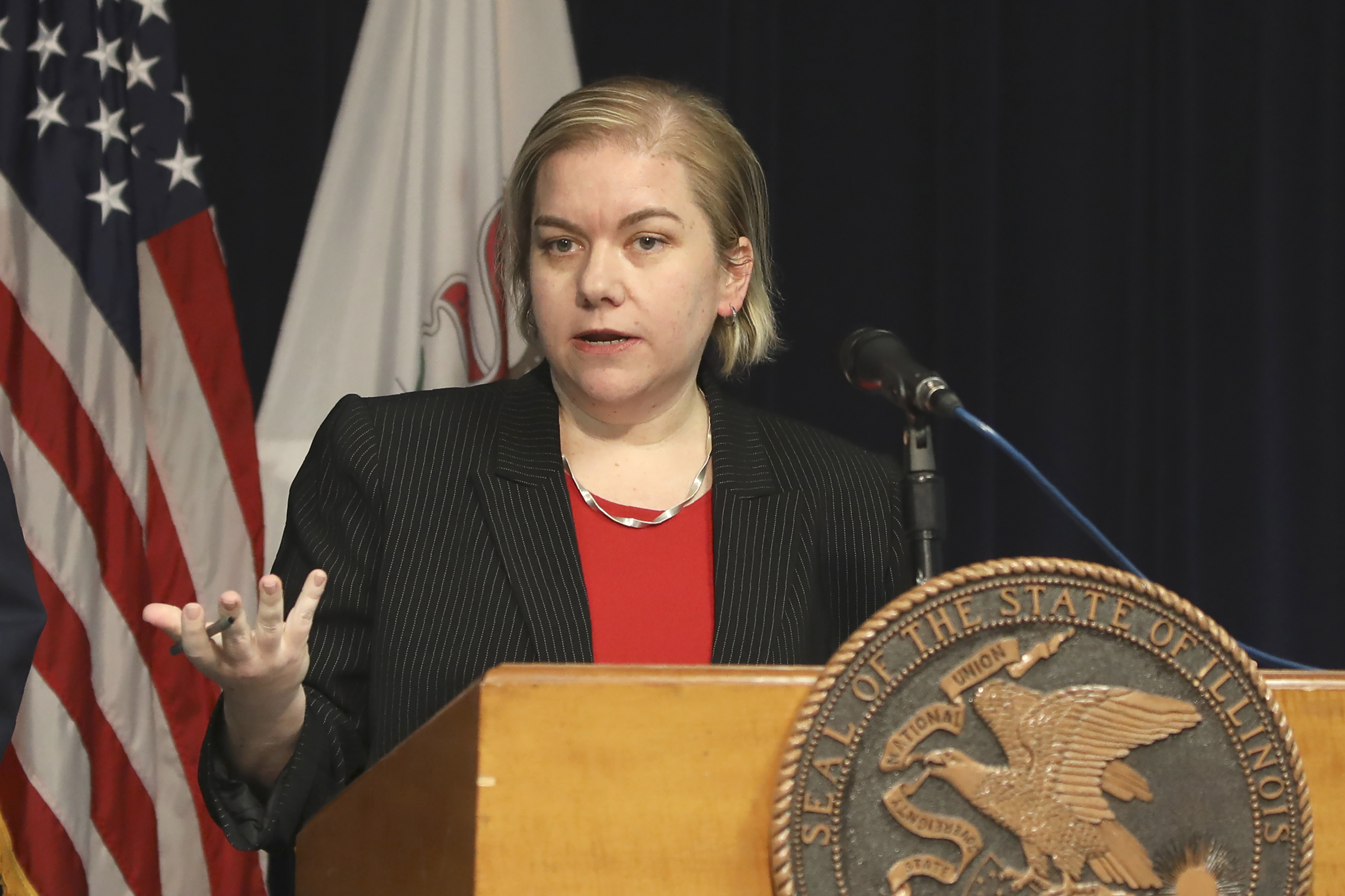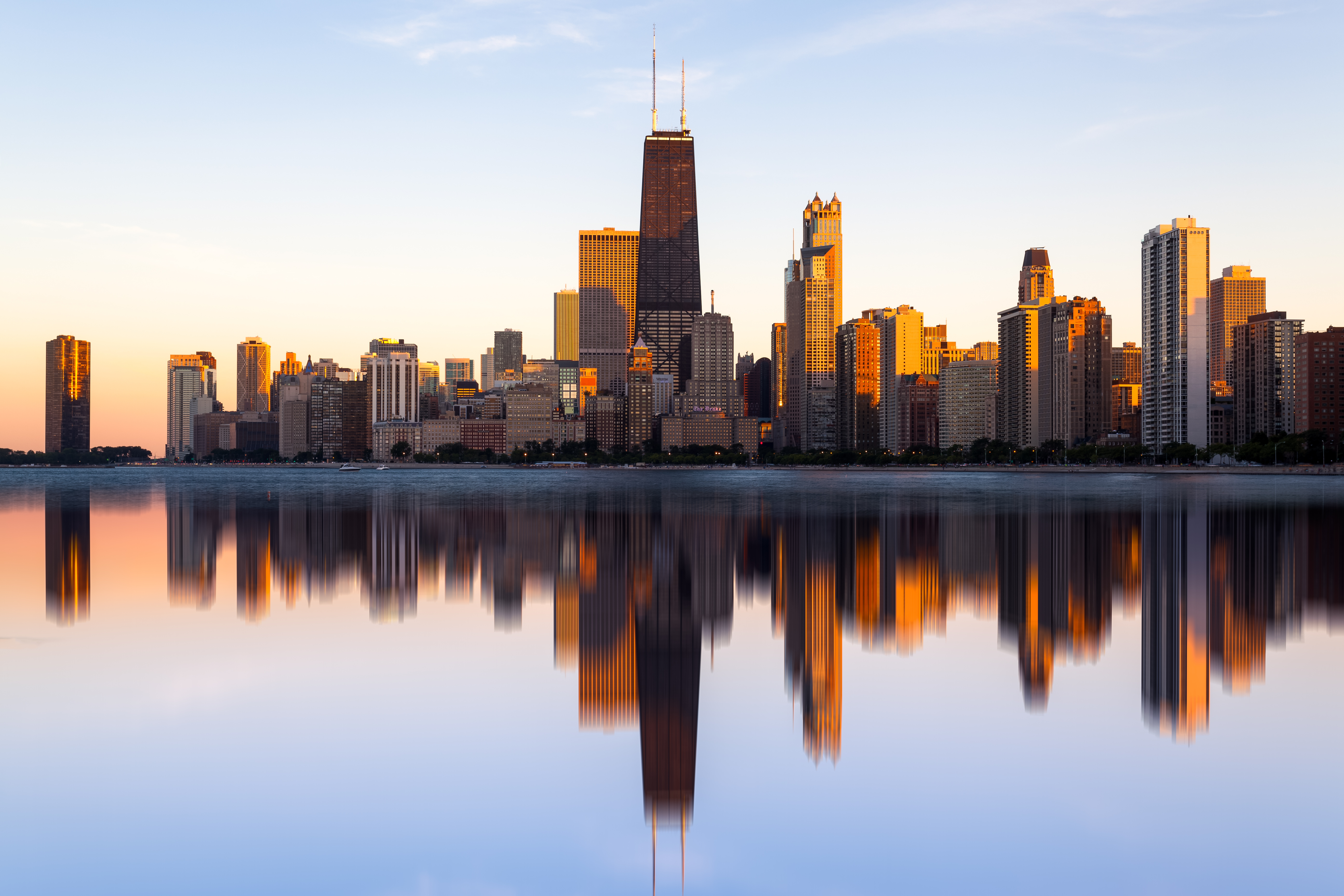Chicago's top health official said she's concerned the city could begin to see a spike in cases as cities and states across the country report new waves amid reopening.
Already, Utah and Oregon put any further reopenings of their economies on hold amid a spike in coronavirus cases, but there was no turning back Friday in such states as Texas, California, Arkansas and Arizona despite flashing warning signs there, too.
Florida posted a record 1,900 new coronavirus cases Friday, pushing its total over 70,000 since the outbreak began three months ago and continuing an upward trend propelled partly by increased testing but also by a higher percentage of tests coming back positive.
One by one, states are weighing the health risks from the virus against the economic damage from the stay-at-home orders that have thrown millions out of work over the past three months.
Cook County still has the highest number of coronavirus cases of any county in the U.S. and Illinois is among the top five states with the highest case totals. Overall, the state has reported a total of 133,016 cases, with 85,184 in Cook County alone.
Of those, 49,603 were in Chicago.
"I'll remind you that Cook County has the most COVID cases of any county in the United States," Dr. Allison Arwady, commissioner for the Chicago Department of Public Health said. "Some of that is because we are a very large county by population, but nevertheless, although progress is good, we are still in a high incidence-state here."
Still, a recent report from Fortune Magazine indicates Illinois has seen the largest decline in cases over the last two weeks.
Illinois officials reported just 473 new cases statewide on Monday, another drop in the overall infection rates across the state. According to data from the Illinois Department of Public Health, that marks the lowest single-day increase in virus cases since March 30.
Chicago, however, is preparing as several other cities and states have started seeing new spikes in coronavirus cases after reopening.
"As folks have seen, we have seen increases in about 20 other states at this point that reopened before Illinois did and before Chicago did," Arwady said. "Obviously, we're watching very carefully to see what happens there. Our goal, of course here is to ideally not see any of those increases. If we were to see increases, we have a system that would allow us to pause or if necessary, go back."
That concern was echoed by the city's mayor Monday.
"If you look at other states across the country who didn't have the stringent stay at home rules that we did, who opened up way too quickly, without guidance, what we're seeing in every single one of those states is a huge surge in cases and some of them are actually reporting the highest incidence of new cases that they've had this entire year because they did not manage the reopening correctly," Chicago Mayor Lori Lightfoot said. "We do not want that to happen in Chicago, but it's really dependent upon every person taking individual responsibility and doing this the right way. And I surely hope that people will call it's not gone. It's still here."
Chicago is currently in its third phase of reopening, and while health and city officials have said additional restrictions will likely be loosened in this phase, they're also looking ahead to phase four.
Currently, the city is on track to meet its metrics to enter phase four possibly as early as July 1. But the area remains deficient in testing capacity, which saw disruptions due to protest demonstrations and inclement weather.
And many have expressed concerns over a surge following mass protests in the city.
"So if you think about this, let's take the protests for example, which has been one of the most visible ways in which people have been gathering. Say there's someone at a protest who is young and healthy, and hopefully they are wearing their face coverings and keeping their six foot distance and washing their hands and doing everything they can to be as safe as possible, but it's possible that they could be infected," Arwady said. "If they're young and healthy. They might have very mild symptoms, or perhaps not develop symptoms at all. It can take up to 14 days for the infection to take hold in their body. And the concern becomes that if a young, healthy person was infected, and they then go on to infect a parent, a grandparent, somebody with an underlying condition in their household, we don't actually see that infection until even the next 28 days potentially. And so we won't know the full impact of us moving toward reopening, or some of the activity that we've been seeing really for a few weeks yet."
Arwady said the number of demonstrators wearing face masks could help limit a resurgence - as long as many also quarantine for 14 days following the events.
"If people are doing that well it's quite possible we could continue to see progress," she said.
If not, however, the city has implemented a system to determine if the reopening should stall or possibly even move backwards. As long as metrics continue to be met, or stay "green," cautious reopening plans can advance. If some metrics are not being met, or become "yellow," the city will "pause and monitor."
But if the city's progress turns "red," plans will stop and some restrictions may be reinstated.
"With the stay-at-home order lifted, with warmer weather here, with more and more people getting out and getting together in groups along with the large gatherings that we've seen in the streets over the past few weeks, we are concerned and watching closely," Arwady said. "We've not seen an uptick in cases yet, which is great news, but we monitor and we will be monitoring for at least 28 days after we moved into phase three, because that represents two incubation periods."



